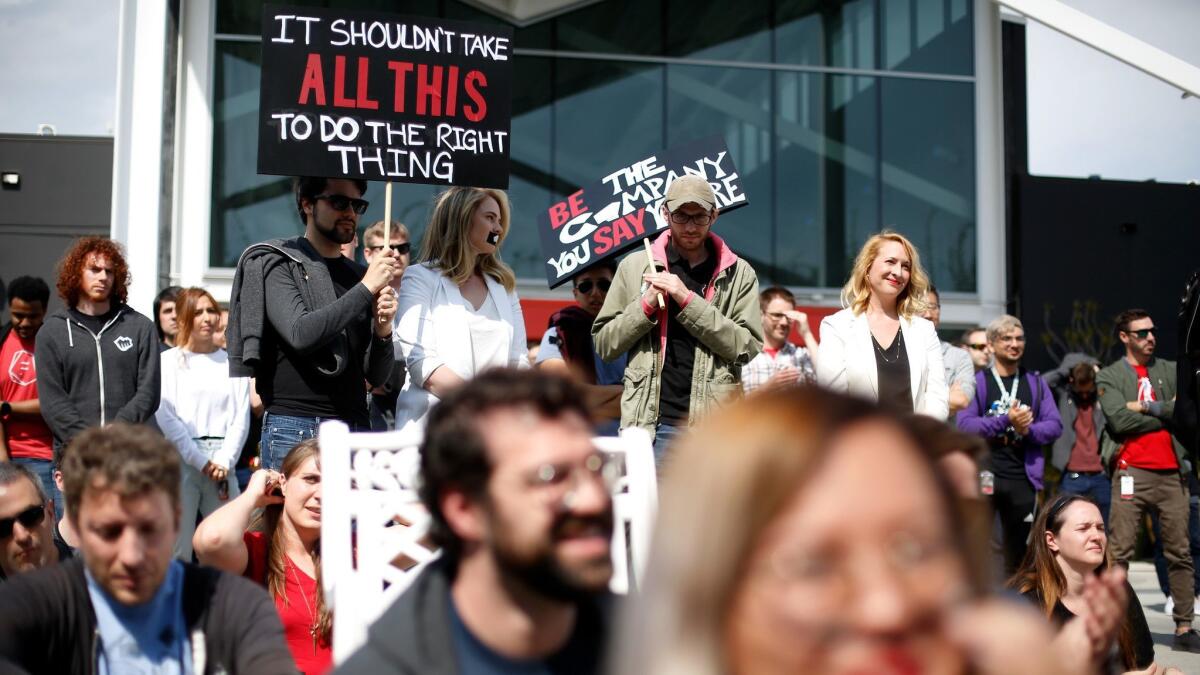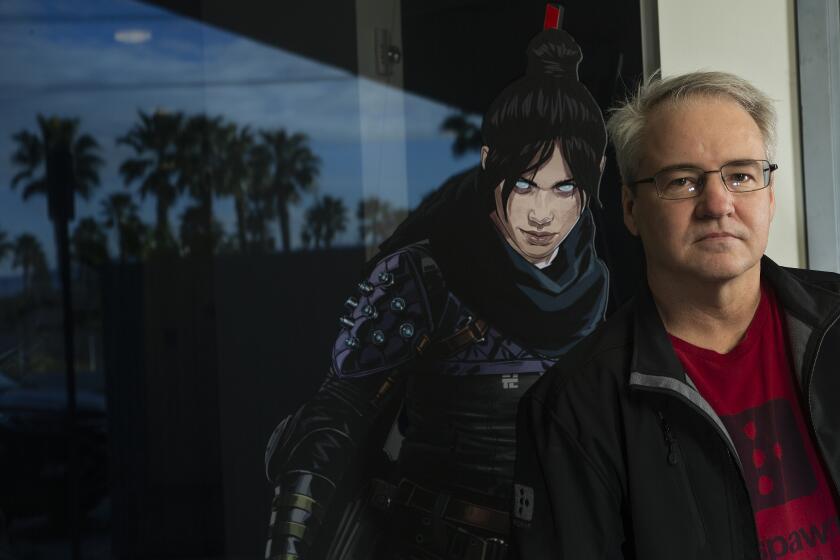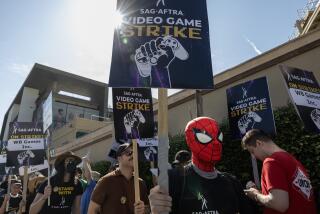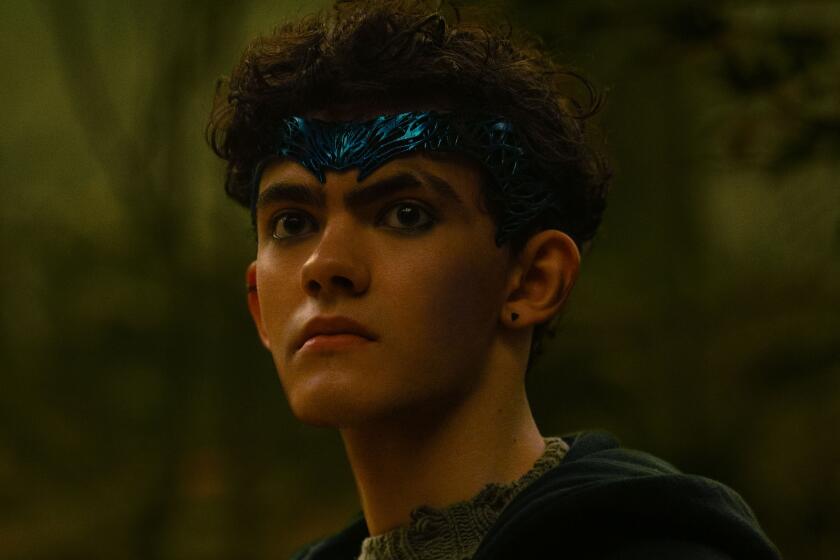Long hours and ‘a pile of white dudes’: Annual survey looks at game industry working conditions

A rare, insider look at the highly secretive game industry from the Game Developers Conference. Developers share thoughts on working conditions, the need for unionization, attempts to diversify and more.
The state of the game industry is ... transitional.
Developers regularly work more than 40 hours a week; attempts to unionize aren’t getting traction; and it’s still an effort to ensure a game studio isn’t simply “a pile of white dudes,” as one developer put it in a newly released survey by the Game Developers Conference, the interactive entertainment industry’s largest professional gathering.
Diversity topics in particular are still an “impossible conversation for the games industry to have well unless they are willing to be very candid about the idea of harassment,” noted one of nearly 4,000 survey participants, adding that there is reticence to discuss why the industry remains so male-dominated.
“When talking about the disproportionate number of women working in gaming, higher-ups seem to be a little nervous about openly admitting some of the reasons why there might be such hostility directed towards women in gaming,” wrote the participant. “I think many individuals still think that if they are generally liberal-minded, socially conscious individuals, diversity just ‘happens’ because they’re not worried about it — not stopping to think about unconscious bias or recognizing that clear-cut initiatives still really matter.”
The yearly survey comes ahead of the conference’s annual March meet-up in San Francisco, and it provides a glimpse into the lives of working developers, offering a snapshot of what those making games today think of everything from emerging technologies to quality of life. Arriving at a time when the video game business is facing increased calls for unionization, the survey represents the rare insider document for a highly secretive industry.
Some things haven’t changed: The industry, of course, remains male-dominated and “driven by young workers who tend to depart within a decade.” And when it comes to future tech, it’s augmented rather than virtual reality the industry is betting on.
Yet the industry is gradually becoming more diverse, both in whom it employs and the kind of content it creates. In the current survey, 75% of participants identified as male and 21% as female, which is a shift from two years ago, when the industry was 80% male.
“We’re definitely moving in a more inclusive direction — slowly but surely,” said Katie Stern, the conference‘s general manager.
Cultural issues dominated talk in the game industry in 2019. Earlier this month, one of the nation’s largest labor unions, the Communications Workers of America, launched a major initiative aimed specifically at unionizing video game and tech companies. This is the outgrowth of an ongoing conversation that has looked at issues including workplace discrimination, the industry practice of “crunch,” in which employees are expected to work around the clock to finish a game, and rolling layoffs.
Additionally, in the last few years there has been a wave of walkouts, petitions and other workplace actions at video game and tech companies. Here in Southern California, a walkout at Los Angeles game studio Riot Games grew out of employee demands to end the practice of forcing workers into private arbitration instead of allowing them to sue over claims of sexual harassment and workplace discrimination.
In such a climate, it’s not a surprise that the majority of those surveyed — 54% — said they felt the industry should unionize, compared with 16% against the efforts. That’s a uptick from last year’s survey, when 47% of those surveyed were in favor of unionization. Yet the industry remains pessimistic that the labor initiatives will come to fruition, as just 23% of developers felt the industry would officially organize.
“There are so many constituents involved,” said Stern when asked about the difficulties with unionizing.
“It’s such a complex issue, particularly with the game industry,” Stern said. “You’re working with so many freelancers and international folks. You could be a U.S.-based studio but half of your developers may be in the Middle East or Eastern Europe. You’re dealing with all different kinds of labor rules and governmental polices, so it’s not as straightforward as it would be with other industries.”
One of the topics most fueling the push for unionization is hours worked. Close to half of those surveyed — 44% — said they regularly put in more than 40 hours a week. According to the survey, 1% of “respondents said they worked more than 90 hours in a single work week over the last year, with five respondents claiming to have worked 120 hours in one week.”
As in other media industries in recent years, personal and harrowing stories of sexual and workplace harassment in the game industry have come to the surface, spurred in part by the #MeToo and Time’s Up movements. Although questions regarding sexual and workplace harassment weren’t directly asked , diversity figured heavily into the survey, which asked if studios were investing in inclusion initiatives. (Talks at the conference in March will address the subjects.)
About a quarter of those polled said their “studio had invested at least a moderate amount in diversity and inclusion efforts,” but some of the responses provided a more nuanced picture.
“Due to the candidate pools available to us, if we’re not consistently diligent at pushing forward diversity candidates we go from being diverse to a pile of white dudes in three months,” said one participant.
Another said: “The staff who aren’t cis white males seem to be disproportionately A) contract employees and/or B) affected by layoffs. On paper our numbers are better now than a few years ago, but I’m not sure if retention is going well.”
Stern said the industry is in the midst of a bit of soul-searching, both in the types of games that are being made and studio culture.
“There’s shooting games, but there’s a place for beautiful art games that make you feel good,” Stern said. “Allowing that, and creating space for that and not penalizing one that isn’t as mainstream as the other is part of the conversation.
Respawn Entertainment began with a mission to build a better shooter. That became the hit “Titanfall.” In 2019, the studio expanded with the free-to-play “Apex Legends” and “Star Wars: Jedi Fallen Order.” The studio run by Vince Zampella is just getting started, with a virtual reality project on tap for 2020. Zampella also is taking over the Los Angeles offices of DICE.
“But it’s also the culture we create in our studios,” Stern continued. “How are we thoughtfully going about creating a culture? The absence of a plan is what creates unsafe and unhealthy work environments, and that can be anything from working too many hours to creating hostile environments.”
More to Read
The biggest entertainment stories
Get our big stories about Hollywood, film, television, music, arts, culture and more right in your inbox as soon as they publish.
You may occasionally receive promotional content from the Los Angeles Times.












